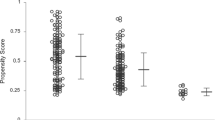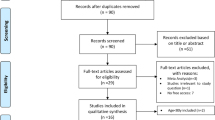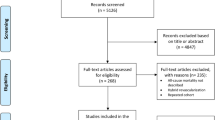Abstract
Coronary artery bypass grafting has proven a remarkably effective treatment for occlusive coronary artery disease, with demonstrable impact on both symptoms and survival. As conducted traditionally, cardiopulmonary bypass is required, and a global myocardial ischemic insult imposed with aortic occlusion under the protection of cardioplegic arrest. Despite the remarkable success of this approach, concerns over the systemic effects of bypass, including neurologic sequelae as well as ischemic myocardial injury, have stimulated development of techniques and technology to perform coronary bypass 'off-pump'. This technique obviates the need for the bypass machine and imposes only brief regional ischemia during construction of each individual anastomosis. Despite enthusiastic support by a devoted cohort of surgeons, and a host of nonrandomized retrospective studies demonstrating an apparent benefit to the off-pump technique, the technique has not been universally adopted. How can there be such controversy over what appears to be a superior approach? In part, many surgeons are concerned that the greater technical difficulty of the technique will impact long-term results adversely. There is also uncertainty with regard to the actual advantage of off-pump coronary artery bypass over the tried-and-true methods. Surgeons recognize that the results of any surgical series are particularly subject to the influence of subtle selection biases. Accordingly, prospective randomized studies add particular value to the debate. It is the aim of this review to examine the evidence for off-pump coronary artery bypass critically, from a surgeon's perspective, with particular emphasis on knowledge derived from a representative selection of published prospective randomized studies.
This is a preview of subscription content, access via your institution
Access options
Subscribe to this journal
Receive 12 print issues and online access
$209.00 per year
only $17.42 per issue
Buy this article
- Purchase on Springer Link
- Instant access to full article PDF
Prices may be subject to local taxes which are calculated during checkout
Similar content being viewed by others
References
Pfister AJ et al. (1992) Coronary artery bypass without cardiopulmonary bypass. Ann Thorac Surg 54: 1085–1092
Buffolo E et al. (1985) Direct myocardial revascularization without cardiopulmonary bypass. Thorac Cardiovasc Surg 33: 26–29
Newman MF et al. (2001) Longitudinal assessment of neurocognitive function after coronary-artery bypass surgery. N Engl J Med 344: 395–402
Ferguson TB Jr et al. (2002) A decade of change—risk profiles and outcomes for isolated coronary artery bypass grafting procedures, 1990–1999: a report from the STS National Database Committee and the Duke Clinical Research Institute. Society of Thoracic Surgeons. Ann Thorac Surg 73: 480–489
The Society of Thoracic Surgeons (online 21 March 2005) [http://www.sts.org/doc/8730] (accessed 21 March 2005)
Lytle BW et al. (1999) Two internal thoracic artery grafts are better than one. J Thorac Cardiovasc Surg 117: 855–872
Desai N et al. (2004) A randomized comparison of radial-artery and saphenous-vein coronary bypass grafts. N Engl J Med 351: 2302–2309
Magee MJ et al. (2002) Elimination of cardiopulmonary bypass improves early survival for multivessel coronary artery bypass patients. Ann Thorac Surg 73: 1196–1203
Mack MJ et al. (2004) Comparison of coronary bypass surgery with and without cardiopulmonary bypass in patients with multivessel disease. J Thorac Cardiovasc Surg 127: 167–173
leveland JC Jr et al. (2001) Off-pump coronary artery bypass grafting decreases risk-adjusted mortality and morbidity. Ann Thorac Surg 72: 1282–1289
Reston JT et al. (2003) Meta-analysis of short-term and mid-term outcomes following off-pump coronary artery bypass grafting. Ann Thorac Surg 76: 1510–1515
Parolari A et al. (2003) Off-pump versus on-pump coronary artery bypass: meta-analysis of currently available randomized trials. Ann Thorac Surg 76: 37–40
Smith GC and Pell JP (2003) Parachute use to prevent death and major trauma related to gravitational challenge: systematic review of randomized controlled trials. BMJ 327: 1459–1461
Wood DE (2003) Lung volume reduction surgery: tempest in a teapot. J Thorac Cardiovasc Surg 125: 457–459
Parolari A et al. (2004) Improved early outcomes after OPCAB: when will the final answer come? Circulation 109: e181
Cheng DC et al. (2005) Does off-pump coronary artery bypass reduce mortality, morbidity, and resource utilization when compared with conventional coronary artery bypass? A meta-analysis of randomized trials. Anesthesiology 102: 188–203
Matata BM et al. (2000) Off-pump bypass graft operation significantly reduces oxidative stress and inflammation. Ann Thorac Surg 69: 785–791
Gerola LR et al. (2004) Off-pump versus on-pump myocardial revascularization in low-risk patients with one or two vessel disease: perioperative results in a multicenter randomized controlled trial. Ann Thorac Surg 77: 569–573
Guler M et al. (2001) Different CABG methods in patients with chronic obstructive pulmonary disease. Ann Thorac Surg 71: 152–157
Diegeler A et al. (2000) Neuromonitoring and neurocognitive outcome in off-pump versus conventional coronary bypass operation. Ann Thorac Surg 69: 1162–1166
Zamvar V et al. (2002) Assessment of neurocognitive impairment after off-pump and on-pump techniques for coronary artery bypass graft surgery: prospective randomised controlled trial. BMJ 325: 1268
Wandschneider W et al. (2000) Off-pump coronary bypass operations significantly reduce S100 release: an indicator for less cerebral damage? Ann Thorac Surg 70: 1577–1579
Lund C et al. (2003) Comparison of cerebral embolization during off-pump and on-pump coronary artery bypass surgery. Ann Thorac Surg 76: 765–770
Lee JD et al. (2003) Benefits of off-pump bypass on neurologic and clinical morbidity: a prospective randomized trial. Ann Thorac Surg 76: 18–26
Czerny M et al. (2001) Complete revascularization in coronary artery bypass grafting with and without cardiopulmonary bypass. Ann Thorac Surg 71: 165–169
Khan NE et al. (2004) A randomized comparison of off-pump and on-pump multivessel coronary-artery bypass surgery. N Engl J Med 350: 21–28
Nathoe HM et al. (2003) A comparison of on-pump and off-pump coronary bypass surgery in low-risk patients. N Engl J Med 348: 394–402
van Dijk D et al. (2001) Early outcome after off-pump versus on-pump coronary bypass surgery: results from a randomized study. Circulation 104: 1761–1766
van Dijk D et al. (2002) Cognitive outcome after off-pump and on-pump coronary artery bypass graft surgery: a randomized trial. JAMA 287: 1405–1412
van Dijk D et al. (2000) The Octopus Study: rationale and design of two randomized trials on medical effectiveness, safety, and cost-effectiveness of bypass surgery on the beating heart. Control Clin Trials 21: 595–609
van Dijk D et al. (2004) Association between early and three month cognitive outcome after off-pump and on-pump coronary bypass surgery. Heart 90: 431–434
Keizer AM et al. (2003) Cognitive self-assessment one year after on-pump and off-pump coronary artery bypass grafting. Ann Thorac Surg 75: 835–839
Angelini GD et al. (2002) Early and midterm outcome after off-pump and on-pump surgery in Beating Heart Against Cardioplegic Arrest Studies (BHACAS 1 and 2): a pooled analysis of two randomised controlled trials. Lancet 359: 1194–1199
Ascione R et al. (1999) Economic outcome of off-pump coronary artery bypass surgery: a prospective randomized study. Ann Thorac Surg 68: 2237–2242
Ascione R et al. (1999) Beating versus arrested heart revascularization: evaluation of myocardial function in a prospective randomized study. Eur J Cardiothorac Surg 15: 685–690
Ascione R et al. (1999) On-pump versus off-pump coronary revascularization: evaluation of renal function. Ann Thorac Surg 68: 493–498
Ascione R et al. (2000) Predictors of atrial fibrillation after conventional and beating heart coronary surgery: a prospective, randomized study. Circulation 102: 1530–1535
Ascione R et al. (2000) Inflammatory response after coronary revascularization with or without cardiopulmonary bypass. Ann Thorac Surg 69: 1198–1204
Ascione R et al. (2001) Reduced postoperative blood loss and transfusion requirement after beating-heart coronary operations: a prospective randomized study. J Thorac Cardiovasc Surg 121: 689–696
Ascione R et al. (2004) Beating heart against cardioplegic arrest studies (BHACAS 1 and 2): quality of life at mid-term follow-up in two randomized controlled trials. Eur Heart J 25: 765–770
Lloyd CT et al. (2000) Serum S-100 protein release and neuropsychologic outcome during coronary revascularization on the beating heart: a prospective randomized study. J Thorac Cardiovasc Surg 119: 148–154
Puskas JD et al. (2003) Off-pump coronary artery bypass grafting provides complete revascularization with reduced myocardial injury, transfusion requirements, and length of stay: a prospective randomized comparison of two hundred unselected patients undergoing off-pump versus conventional coronary artery bypass grafting. J Thorac Cardiovasc Surg 125: 797–808
Puskas JD et al. (2004) Off-pump vs conventional coronary artery bypass grafting: early and 1-year graft patency, cost, and quality-of-life outcomes: a randomized trial. JAMA 291: 1841–1849
Straka Z et al. (2004) Off-pump versus on-pump coronary surgery: final results from a prospective randomized study PRAGUE-4. Ann Thorac Surg 77: 789–793
Grichnik KP et al. (1999) Cognitive decline after major noncardiac operations: a preliminary prospective study. Ann Thorac Surg 68: 1786–1791
Hlatky MA et al. (1997) Cognitive function 5 years after randomization to coronary angioplasty or coronary artery bypass graft surgery. Circulation 96 (Suppl): 11–15
Rasmussen LS et al. (2001) The assessment of postoperative cognitive function. Acta Anaesthesiol Scand 45: 275–289
Gulielmos V et al. (2000) Interleukin-1, interleukin-6 and myocardial enzyme response after coronary artery bypass grafting - a prospective randomized comparison of the conventional and three minimally invasive surgical techniques. Eur J Cardiothorac Surg 18: 594–601
Author information
Authors and Affiliations
Corresponding author
Ethics declarations
Competing interests
The author declares no competing financial interests.
Glossary
- S100
-
Protein in astrocytes, released into peripheral blood after neurologic injury damages the blood–brain barrier: two forms, S100A and S100B
- HIGH-INTENSITY TRANSIENT SIGNALS (HITS)
-
Signals detected by transcranial Doppler indicating microemboli: platelet thrombi, atherosclerotic debris, or gaseous particles
- TRANSCRANIAL DOPPLER IMAGING
-
Noninvasive means of evaluating blood-flow velocities of the middle cerebral arteries by ultrasound via the temporal sound windows
Rights and permissions
About this article
Cite this article
Sundt, T. Technology Insight: randomized trials of off-pump versus on-pump coronary artery bypass surgery. Nat Rev Cardiol 2, 261–268 (2005). https://doi.org/10.1038/ncpcardio0190
Received:
Accepted:
Issue Date:
DOI: https://doi.org/10.1038/ncpcardio0190
This article is cited by
-
Bypassoperationen ohne Herz-Lungen-Maschine
Zeitschrift für Herz-,Thorax- und Gefäßchirurgie (2007)



